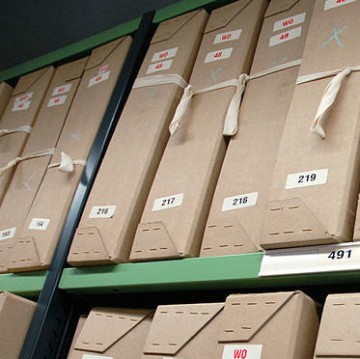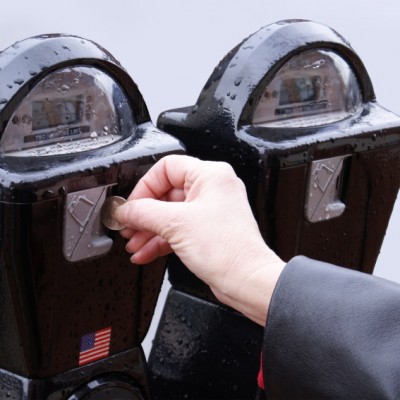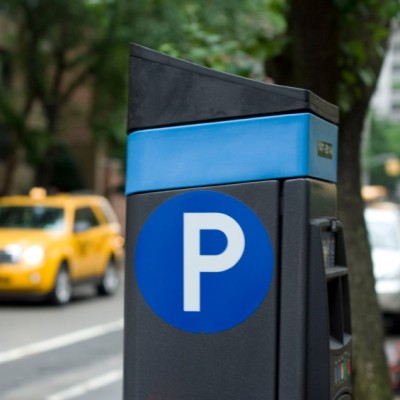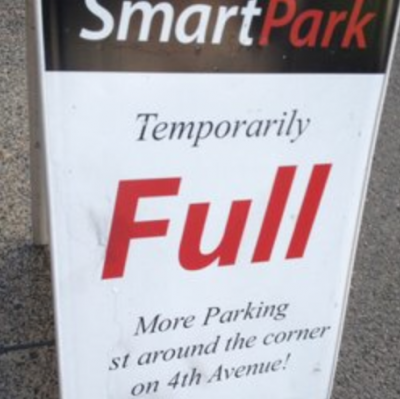Nonprofit Says Portland Overcharged Them to Impede Public Records Request
Tuesday, February 03, 2015

The Southeast Uplift neighborhood coalition is planning to appeal $2,562.32 the group paid for two massive files, the result of a public records saga that brought the Portland Street Fee opponents to Multnomah County court in December.
In one iteration of the city’s plan to come up with roughly $46 million to fund road repairs and maintenance -- now on hold for a statewide transportation bill -- Portland transportation officials looked to massive city data sets to determine how much businesses would need to pay for a tax-based fee. During that time, Southeast Uplift President Robert McCullough requested all work papers used by the Portland Bureau of Transportation (PBOT) to make the calculation.
According to a chart provided by PBOT, city staff spent 19 hours preparing the spreadsheets, something McCullough claims was a deliberate attempt to stymie the records release.
“All they had to do was take the spreadsheets, put them on a USB and send them,” McCullough said. “There is no legitimacy to this at all.”
McCullough said Southeast Uplift will make an appeal to the Multnomah County District Attorney, followed by the Multnomah County Court. McCullough, an energy consultant, wanted to review the data to complete a comprehensive analysis of his own.
The Transportation Bureau maintains the price was warranted, given the amount of staff time that went into fulfilling the request. But the issue brings to light a bigger problem in Oregon, according to Jann Carson of the American Civil Liberties Union. Fees for public records requests are forcing private citizens and non-profits to abandon records requests, she said.
“It has become a significant transparency problem in Oregon, the fees have become prohibitive,” said Carson. “I’m glad Southeast Uplift is challenging the number of hours it took to complete that request.”
Street fee data
McCullough’s employee, Ramon Cabauatan, sent the following records request to the City of Portland’s transportation bureau Nov. 12, 2014, on behalf of SE Uplift, requesting the fee be waived in the public’s interest:
We request copies of all workpapers behind the Portland street fund calculations for determining the monthly contribution of businesses to the proposed fund; this includes, (but is not limited to) all records, spreadsheets, documents and formulas that are used to determine business contributions.
The city enlisted Innovative Growth Solutions consultant Gary Corbin, along with city staff, to analyze data from sources such as the city’s Business License Information System, the Multnomah County Assessor Taxation Database, and City Utility Billing System. The data analysis would help the city estimate the amount businesses and private individuals would need to pay to fund a street fee through tax.
Three files, containing 26 spreadsheets -- one with 131,000 rows and 47 columns of data -- were delivered to McCullough Dec. 23, after he threatened the city with a lawsuit. The spreadsheets show several columns in which each row reads “redacted,” and McCullough argues “all they did was copy ‘redacted’ on to seven columns.”
“If any costs were actually incurred, we will be glad to pay them,” he said.
PBOT spokesman Dylan Rivera said the bureau did not waive the fee because providing the records did not primarily benefit the general public when considering a number of factors, including what he called McCullough’s focus on errors in the data.
As GoLocalPDX reported in December, McCullough found “thousands of errors” in the city’s data, which listed a Northeast Portland enema clinic as the city’s largest employer. However, the issue, he said, is the bureau’s move to bill the non-profit for 19 employee hours.
“It was not appropriate for this already financially challenged bureau to deviate from our ongoing work -- operating and maintaining the transportation system -- to do the analysis needed to provide these records,” Rivera said. “It was very time consuming to extract the data which included large spreadsheets from several different data sources.”
‘The technology is there’
Carson, of the ACLU, argues the city should be gathering and organizing data with the understanding that it is public information, and with that in mind, make it easy to share while complying with privacy laws.
“If everything is being kept on a spreadsheet, how difficult is it to maintain confidential information in a column so it can be easily redacted?” she asks. “The technology is there.”
ACLU Oregon sued the Jackson County Sheriff in 2011 over proposed fees for a records request. The judge ruled in 2012 the cost was unreasonable, forcing the Sheriff’s office to fulfill the request for just over one tenth of the original quote.
Carson said when an agency that falls under the Access to Public Records Act receives a request, the law allows staff to charge if the request will take staff away from their day-to-day duties. Agencies frequently say they have to pay for staff to redact and review confidential or privileged information.
“Often they’ll put an attorney on that,” Carson said. “For a non-profit, it amounts to it being an insurmountable hurdle to make that information transparent.”
By Dec. 9, SE Uplift filed an appeal in Multnomah County Circuit Court asking District Attorney Rod Underhill to provide work papers for the street fee calculation. The city provided McCullough with three spreadsheets Dec. 23.
$2,562.32 fee
A chart, provided to Southeast Uplift by PBOT, lists the amount of time three staff spent on McCullough’s request, and their rate of pay: 11 hours at $175 per hour, five hours at $76.95 per hour, and three hours at $84.19 per hour for the two files.
Rivera said Corbin, who was paid $175 per hour, extracted data, while an attorney and a revenue bureau manager reviewed the records to determine which information could be disclosed, and which was private under the city’s Business License Law. The listed wages included overhead, Rivera said, and the bill came in just shy of the city’s $2,720 estimate.
Carson said ACLU Oregon has bumped up against similar requests for information, and the organization has made the call in the past not to pursue the appeals process. When the organization sued the Jackson County Sheriff’s Office, Carson said it ultimately cost taxpayers because the sheriff’s office had to employ an attorney to debate the cost of the records request, which they ended up lowering.
“Because the fees that are projected to make this information available are prohibitive, unless there’s push back, how do we understand if this is the true cost?” Carson wonders.
She said high fees for public records requests result in many requests being abandoned, something she said undermines having an open records law in the first place.
McCullough said he plans to fight the fee, and claims Southeast Uplift has received multiple offers to help defray the cost.
“Allowing the city to withdraw from Oregon's open document law is not an option, regardless of how complex the subterfuge has been presented,” McCullough said.
Related Slideshow: Ways To Fund Street Repairs Without A Street Fee
Related Articles
- NEW: Street Fee Options To Be Referred To Voters In May
- Portland Approves New Street Fee Spending Even As State Takes Over
- Why the Portland Street Fee Is A Bad Idea
- NEW: Hales and Novick Punt Street Fee, Look to State Transportation Bill
- Commissioner Amanda Fritz Refuses to Support Portland Street Fee Plan
- Data Used To Calculate Portland Street Fee Full of Errors, Critics Say
- NEW: Commissioner Novick Proposes 5-Tiered Tax Structure for Portland Street Fee
- 11 Ways to Pay a Portland Street Fee Without an Income Tax


























 Delivered Free Every
Delivered Free Every
Follow us on Pinterest Google + Facebook Twitter See It Read It